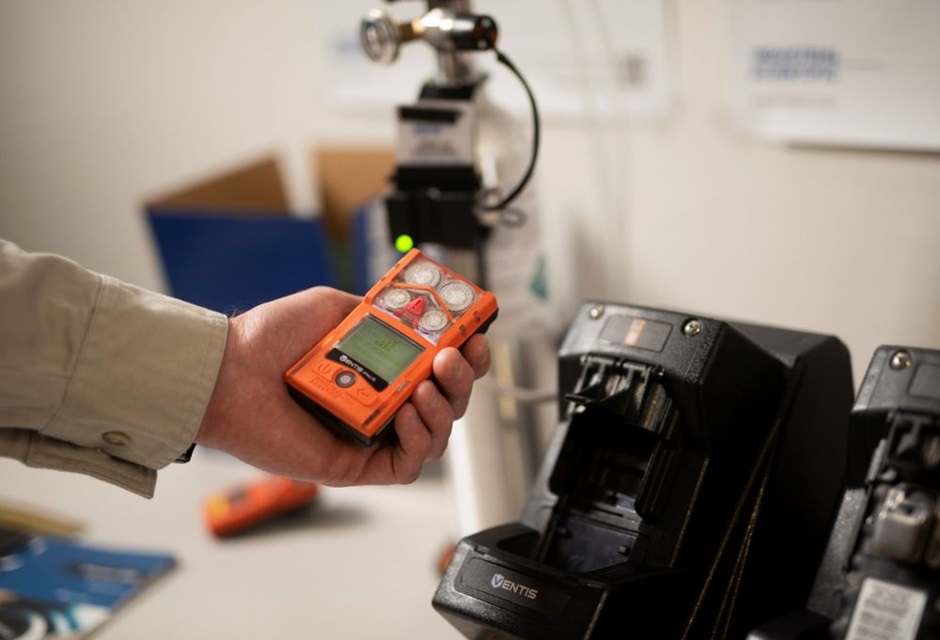
Ensuring the safety and well-being of employees is a fundamental responsibility for any business. While workplace hazards can vary widely, the invisible threat posed by harmful gases is a critical concern. From industrial facilities to office buildings, the risks associated with gas leaks or accumulations are both immediate and long-term. This is where gas detectors become indispensable.
Protecting Worker Health and Safety
The primary reason for using gas detectors in the workplace is to protect the health and safety of employees. Hazardous gases such as carbon monoxide, methane, hydrogen sulphide, and ammonia can be colourless and odourless, making them nearly impossible to detect without specialised equipment. Prolonged exposure to these gases can cause serious health problems, including respiratory issues, neurological damage, or even death.
In addition to acute dangers, some gases present long-term risks. For example, workers exposed to low but consistent levels of toxic chemicals may develop chronic illnesses over time. By continuously monitoring the air for harmful substances, gas detectors provide real-time alerts, allowing employees to evacuate or take preventive action before the situation becomes critical.
Meeting Regulatory Compliance
Workplace safety is governed by strict regulations. These regulations usually require employers to assess and manage risks related to hazardous substances, which often include gases.
Another critical aspect of compliance is ensuring that gas detectors are regularly calibrated and tested. Calibration tests verify that the device is accurately measuring gas concentrations. Without proper calibration, gas detectors may produce false readings. By conducting a routine calibration test and maintenance, businesses can maintain the integrity of their gas detection systems.
Preventing Explosions and Fires
Many gases, such as methane, propane, and hydrogen, are highly flammable. When these gases accumulate to a certain concentration, they create an explosive atmosphere that can ignite with even the smallest spark. Workplace explosions not only endanger lives but can also cause extensive property damage and financial losses.
Gas detectors equipped with lower explosive limit sensors can detect the presence of flammable gases before they reach dangerous levels. Early detection allows workers to take corrective actions, such as ventilating the area or shutting down equipment, to prevent catastrophic incidents. By acting as an early warning system, gas detectors significantly reduce the risk of explosions and fire damage, safeguarding both personnel and assets.
Enhancing Operational Efficiency
Beyond safety, gas detectors also contribute to better operational efficiency. In industries such as manufacturing, mining, and oil and gas, equipment malfunctions caused by gas leaks can lead to costly downtime. Detecting leaks early enables maintenance teams to address issues before they escalate, minimising disruptions to production processes.
Additionally, modern gas detection systems often integrate with broader workplace monitoring solutions, providing valuable data on air quality and environmental conditions. This information can be used to optimise processes, improve ventilation systems, and ensure that machinery is functioning within safe parameters. In this way, gas detectors not only prevent accidents but also support more efficient and sustainable operations.
Building Trust and Reputation
A safe workplace fosters trust among employees, clients, and stakeholders. When workers know that their employer prioritises their well-being by investing in robust safety measures, morale and productivity often improve. Similarly, clients and partners are more likely to engage with businesses that demonstrate a strong commitment to safety and compliance.
A strong safety record can also enhance a company’s reputation. Organisations that prioritise gas detection and other safety measures are seen as responsible and forward-thinking, which can be a significant advantage when attracting top talent or securing contracts.
Adapting to Technological Advancements
Gas detection technology has advanced significantly in recent years, offering greater accuracy, reliability, and ease of use. Portable gas detectors, wireless monitoring systems, and real-time analytics tools allow businesses to stay ahead of potential hazards. These innovations are particularly important in dynamic workplaces where conditions can change rapidly.
By adopting the latest gas detection solutions, businesses can ensure they are well-equipped to handle emerging risks. Furthermore, modern systems often come with features such as data logging and remote monitoring, enabling better decision-making and more comprehensive risk assessments.
Conclusion
Gas detection systems play a vital role in creating a secure and productive environment. In an era where workplace safety standards are higher than ever, businesses cannot afford to overlook the importance of this critical technology. Prioritising gas detection is a clear signal of your commitment to the health, safety, and success of your team and organisation.







